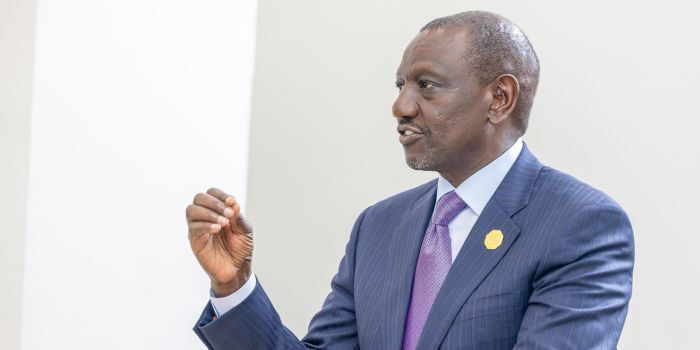A new survey by Trends and Insights for Africa (TIFA) has shed light on how Kenyans view President William Ruto’s role in recent cases of human rights violations. The findings show that almost one in five Kenyans directly blame the Head of State for the abuses.
TIFA Research CEO, Maggie Ireri, explained that political affiliation strongly influenced how people responded. The poll revealed that 19 per cent of Kenyans who oppose the current administration hold President Ruto personally responsible. In comparison, only 6 per cent of his supporters share the same view.
This sharp difference shows how divided Kenyans are depending on whether they support or oppose the government.
At the same time, the majority of Kenyans said they believe the real blame lies with the police and other state security agencies.
The survey highlighted that 35 per cent of respondents see these groups as the main culprits behind extrajudicial killings and enforced disappearances in the country.
TIFA carried out the study between August 23 and September 3, 2025, interviewing 2,023 randomly selected adults from all 47 counties.
Ireri noted that this perception cuts across the political divide, with both supporters and critics of the Broad-Based Government (BBG) largely agreeing.
The figures show that 36 per cent of BBG supporters and 37 per cent of opponents blame the police and state security forces for the violations. “Overall, a clear plurality of Kenyans believe that the police and other state security agencies bear the main responsibility for extrajudicial killings, with 35 per cent pointing directly at them,” TIFA stated in its report.
Interestingly, the poll showed very little difference between government backers and critics on this specific question. Almost equal numbers in both groups also admitted that they were uncertain about who exactly is behind the killings, reflecting the lack of clear information available to the public.
Apart from the police and security agencies, other Kenyans placed responsibility on different actors such as political operatives, organized criminal gangs, and even unidentified groups.
However, the survey revealed that a significant number of people remain unsure about who to blame, pointing to the complexity and secrecy surrounding these crimes.
The study also exposed a deep sense of dissatisfaction with the government’s response to the crisis. According to the results, 73 per cent of Kenyans believe the government has not done enough to address extrajudicial killings and enforced disappearances.
Only 19 per cent of respondents felt that the authorities are handling the matter properly, while 8 per cent said they were unsure.
When broken down by political allegiance, the differences became even clearer. Among supporters of the Broad-Based Government, 37 per cent praised the government’s efforts in dealing with the issue.
But among those who oppose the administration, only 12 per cent agreed. This contrast highlights the strong political divisions that continue to shape public opinion in the country.
Overall, the TIFA survey paints a picture of a nation that is worried about human rights violations and skeptical about how the government is handling the crisis. It also shows how political loyalty influences people’s views, even on serious issues like extrajudicial killings and enforced disappearances.
Join Government Official WhatsApp Channel To Stay Updated On time
https://whatsapp.com/channel/0029VaWT5gSGufImU8R0DO30


